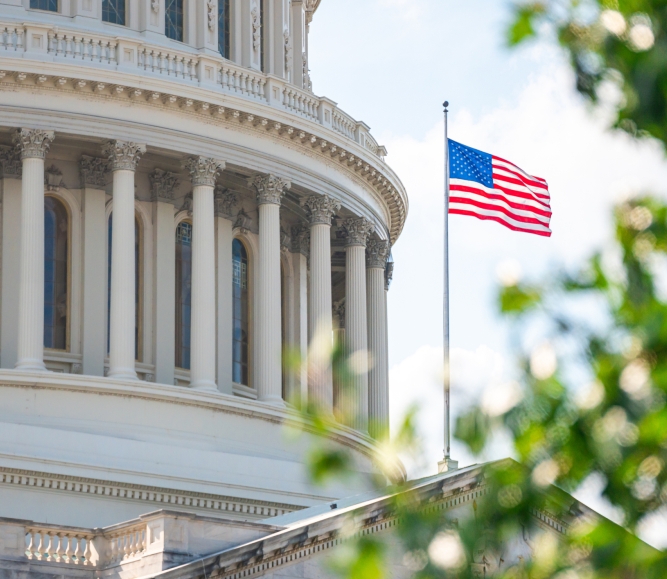Congress considers moratorium on state and local AI lawmaking: What it means for counties
Author

Seamus Dowdall

Emma Conover
Upcoming Events
Related News

Key Takeaways
On May 22, the U.S. House passed The One Big Beautiful Bill Act (H.R. 1), which includes a provision that would create a 10-year moratorium on all state and local policies pertaining to artificial intelligence (AI) from the date of enactment. The moratorium would prohibit state and local governments from enforcing any laws or regulations that pertain to AI models, AI systems or automated decision systems, with select exclusions for laws that streamline AI deployment and development, any existing federal or generally applicable laws, and fees or bonds that are cost-based, reasonable, and non-discriminatory.
On June 25, the U.S. Senate released its version of the reconciliation bill with the same moratorium. The Senate Parliamentarian approved this provision under the “Byrd Rule”, which demands that all provisions in the reconciliation bill must pertain to budget and spending.
What is the state of the AI moratorium?
H.R. 1 includes a 10-year moratorium on state and local AI policymaking. The provision passed out of the House Energy and Commerce Committee and the full House in May and was included in the Senate reconciliation bill in June.
The Senate version of the provision has several additions, including:
- New language that ties compliance with the AI moratorium to Broadband Equity, Access, and Deployment (BEAD) funding.
- Language clarifying that to be eligible for a $500 million appropriation for AI development under the U.S. Department of Commerce, any prospective grantee or subgrantee must adhere to the moratorium in order to receive funding.
Counties are greatly concerned that a moratorium on AI would limit the ability of local government to regulate the emerging technology on behalf of its residents, as well as through the procurement process in delivering public goods and services.
Why does this matter to counties?
County governments have eagerly adopted AI solutions to streamline the delivery of essential public goods and services, as well as maintain critical infrastructure and improve efficiencies for residents. As a result, state and local governments have had a growing obligation to ensure the emerging technology is deployed in a manner that protects residents’ data and privacy.
Furthermore, in the absence of an existing federal regulatory standard on AI or related issues such as data privacy and children’s online safety, state and local governments have sought to address the negative externalities that AI and generative AI may be bringing to residents.
As such, counties must maintain the ability to pass meaningful resolutions and partner with their state governments to monitor the safe and responsible deployment of AI, protect constituent data, and safeguard against nefarious uses of technology.
NACo will continue to monitor the provision throughout the reconciliation process.
Press Release
County Leaders Visit Washington to Share Local Perspective on Budget Reconciliation
Elected officials from five states sound alarm about administrative and funding changes to SNAP and Medicaid.

Related News

National Association of Counties Launches Initiative to Strengthen County Human Services Systems
The National Association of Counties (NACo) announces the launch of the Transforming Human Services Initiative, a new effort to help counties modernize benefits administration, integrate service delivery systems and strengthen county capacity to fulfill our responsibility as America’s safety net for children and families.

